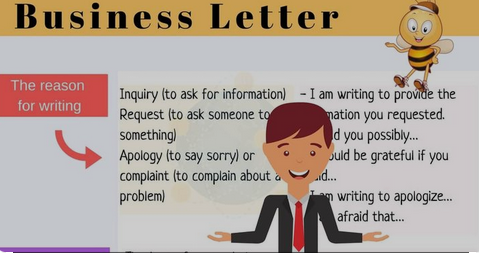Writing effective business letters is crucial for clear and professional communication. Whether you’re communicating with clients, customers, partners, or employees, a well-crafted business letter conveys professionalism and can enhance your business relationships. Here are some tips on how to write effective business letters:

Structure of a Business Letter:
- Sender’s Information:
- Include your name, job title, company name, and contact information at the top of the letter. This provides the recipient with context and makes it easy for them to respond.
- Date:
- Include the date of the letter to establish a timeline for the communication.
- Recipient’s Information:
- Include the recipient’s name, job title, company name, and address. If you have a specific contact person, address the letter to them.
- Salutation:
- Start the letter with a formal salutation, such as “Dear Mr. Smith” or “To Whom It May Concern.”
- Introduction:
- Begin with a clear and concise introduction that states the purpose of the letter. This sets the tone for the rest of the communication.
- Body of the Letter:
- Organize the body of the letter into paragraphs, each covering a specific point or topic. Be clear and direct in your language, and maintain a professional tone.
- Closing:
- End the letter with a courteous closing, such as “Sincerely” or “Best Regards.” Include your signature if sending a physical letter.
- Enclosures or Attachments:
- If you are including additional documents, mention them in the letter and list them at the end.
Tips for Writing Effective Business Letters:
- Be Concise:
- Keep your letter concise and focused. Clearly communicate your message without unnecessary details.
- Use Professional Tone:
- Maintain a professional and respectful tone throughout the letter. Avoid overly casual language, abbreviations, or jargon that may be confusing.
- Know Your Audience:
- Tailor your language and tone to your specific audience. Consider the level of formality appropriate for the recipient.
- Be Clear and Specific:
- Clearly state the purpose of your letter and provide specific details. Ambiguity can lead to misunderstandings.
- Proofread:
- Thoroughly proofread your letter for grammar, spelling, and punctuation errors. A well-edited letter conveys attention to detail and professionalism.
- Use Formal Language:
- Business letters should use formal language and adhere to professional writing standards. Avoid slang or colloquial expressions.
- Addressing Concerns:
- If the letter addresses a concern or issue, focus on solutions rather than dwelling on the problem. Offer constructive suggestions or alternatives.
- Personalization:
- Whenever possible, personalize the letter by using the recipient’s name and mentioning specific details relevant to your relationship or business.
- Follow Up:
- If appropriate, include a call to action or a request for a follow-up. Clearly communicate any necessary next steps.
- Use Appropriate Closings:
- Choose closings that match the tone of the letter. Common closings include “Sincerely,” “Best Regards,” or “Yours Truly.”
By following these guidelines and adapting them to your specific communication needs, you can write effective business letters that convey professionalism and clarity.
